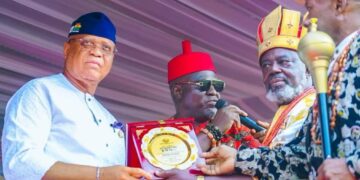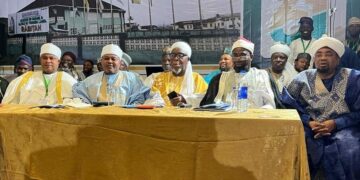Federal Competition and Consumer Protection Commission (FCCPC) has disagreed with claims that its recent penalty order and fine on WhatsApp may force the platform out of Nigeria.
The commission also noted that WhatsApp’s claim that it may be forced out of Nigeria due to its recent order is aimed at influencing public opinion and “potentially pressuring the FCCPC to reconsider its decision.”
WhatsApp Could Exit Nigeria Over FCCPC’s Demands, $220m Fine
WhatsApp issued a warning that it may exit the Nigerian market, if the federal government does not reverse its $220 million fine against it.
The regulator, responding to a report that revealed WhatsApp was considering withdrawing some of its services in the country.
On Thursday, Techcabal reported that a WhatsApp spokesperson said, “We want to be really clear that technically, based on the order, it would be impossible to provide WhatsApp in Nigeria or globally.
“This order contains multiple inaccuracies and misrepresents how WhatsApp works. WhatsApp relies on limited data to run our service and keep users safe, and it would be impossible to provide WhatsApp in Nigeria or globally without Meta’s infrastructure. We are urgently appealing the order to avoid any impact on users.”
Recall that the FCCPC hit back at WhatsApp, fining the messaging behemoth a whopping $220 million and charging it with anti-competitive behaviour and privacy violations. The FCCPC also added more demanding requirements, such as tighter user verification, more stringent data localisation, and more stringent content moderation.
WhatsApp, in a report by Techcabal expressed concerns about the feasibility of complying with these requirements without compromising users’ experience and privacy, while threatening to exit the Nigerian market, if both parties cannot reach a common ground.
The potential move has however sparked widespread debate as Nigerians and experts weighed in by expressing their view on the matter.
For instance, Dr. Abdulfatah Bashir, a X user, applauded the federal government for this brave move, while appealing to the government not to succumb to the pressure by Nigerians. “Please don’t be pressured to reconsider. Sensible Nigerians stand with you on this,” he stated.
A 300 level student of the University of Lagos (UNILAG), who spoke anonymously said, “The same allegation was laid against WhatsApp in the United State (US) and they paid $1.2 billion. This is a violation against Nigerians, WhatsApp should face the law.”
Others beg to differ, as they claimed the potential exit of the platform would lead to disruption in daily life and economic activities.
For instance, a X user with handle @KenWiwa4 said, “Millions will lose their sources of revenue. Does this mean anything to @fccpcnigeria? There are many consumer related issues that you should address rather you’re going after a tech firm that’s providing so much service for Nigerians to cut off that service.
“Dear @bosuntijani , please address this with FCCPC. WhatsApp is a business and communication platform for many Nigerians. Forcing them to exit the Nigerian market will hurt many young people. At a time of high unemployment, the government cannot take actions that exacerbate the situation.”
In reply to her tweet, Ezinne Amarachi said, “You are doing exactly what Meta wants you to do. These tech companies have paid billions in fines to the European Union for violating the same data and privacy laws. If you doubt it, do a quick Google search. Do you know what Meta does with your data?”
Some tech experts have also weighed in for instance Science, Technology, and Innovation (STI) policy advisor and founder of Jidaw.com, Jide Awe told LEADERSHIP that, “WhatsApp is now widely used for peer-to-peer transactions, mobile banking, and other financial services. These services would be disrupted by the platform’s possible exit, which would impede attempts to promote financial inclusion and worsen poverty. In addition to the financial ramifications, the social fallout from WhatsApp’s withdrawal is also cause for concern.
“The platform has also proven to be an invaluable resource for community organisation, information distribution, and crisis help. Lack of it would result in a communication void that would have serious effects on social cohesiveness and public safety.”
In its reaction, the FCCPC said WhatsApp’s claim that it may be forced to exit Nigeria due to its recent order appears to be a strategic move aimed at influencing public opinion and potentially pressuring the FCCPC to reconsider its decision.
The FCCPC via its X handle added that it investigated Meta Platforms and WhatsApp (jointly referred to as “Meta Parties”) for allegedly violating the Federal Competition and Consumer Protection Act (FCCPA) and the Nigeria Data Protection Regulation (NDPR).
“The Commission found that Meta Parties engaged in multiple and repeated infringements of the FCCPA and the NDPR. These infringements included denying Nigerians the right to control their personal data, transferring and sharing Nigerian user data without authorisation, discriminating against Nigerian users compared to users in other jurisdictions and abusing their dominant market position by forcing unfair privacy policies.
“The final order requires Meta Parties to take steps to comply with Nigerian law, stop exploiting Nigerian consumers, change their practices to meet Nigerian standards and respect consumer rights. To deter future violations and ensure accountability for the alleged infringements the FCCPC also imposed a monetary penalty of $220 million.
“The FCCPC’s actions are based on legitimate concerns about consumer protection and data privacy and the order is a positive step towards a fairer digital market in Nigeria. Similar measures are taken in other jurisdictions without forcing companies to leave the market. The case of Nigeria will not be different.”
Meanwhile, the NDPC had stated that it is rounding up its investigation, adding that, “Discussions are on with META, and we will issue our statement very soon.”
…Accuses Coca-Cola Nigeria Of Misleading Descriptions, Unfair Marketing
The Federal Competition and Consumer Protection Commission (FCCPC) has formally accused Coca-Cola Nigeria Ltd and the Nigerian Bottling Company (NBC) of misleading trade descriptions and unfair marketing tactics concerning their “Original Taste” and “Less Sugar” product variants.
The commission’s allegations were outlined in a press statement, shared on the FCCPC’s official X handle. The statement revealed that Coca-Cola Nigeria and NBC were found in violation of Section 116 of the FCCPC Act and Section 124(1)(a) of the Commission’s Establishment Act.
The FCCPC charged that Coca-Cola Nigeria Ltd and NBC misled consumers by presenting the “Original Taste, Less Sugar” variant as being identical in formulation to the “Original Taste” variant. The commission indicated that the issue of abuse of dominance and corresponding penalties under the FCCPA and Administrative Penalties Regulation 2020 (APR) will be addressed in future regulatory actions.
The statement read, “The Commission has issued its Final Order on Coca-Cola and NBC on July 29, 2024. This Final Order includes findings such as misleading trade descriptions under Section 116 FCCPA, which mislead consumers into believing that Coca-Cola Original Taste is not materially different from Coca-Cola Original Taste ‘Less Sugar’.
It also cited unfair marketing tactics, noting that Coca-Cola Nigeria marketed Coca-Cola Original Taste Less Sugar in packaging that was first indistinguishable and now not sufficiently distinguishable from Coca-Cola Original Taste, contrary to Sections 123(1)(a), (b), and (c) of the FCCPA.”
Furthermore, Coca-Cola and NBC, despite regulatory intervention, failed to amend their misleading behaviour, showing intentional misrepresentation of Coca-Cola ‘Original Taste Less Sugar’ as Coca-Cola Original Taste in their business strategy.
The FCCPC also found NBC at fault for using identical packaging for both Zero Sugar and its 50:50 Limca Lime-Lemon flavoured drink, violating Sections 17(g), 116(1) & (2), and 123 of the FCCPA, as well as Section 2(a) of the National Agency for Food and Drug Administration and Control Act 2004. The commission noted that NBC’s deceptive trade descriptions and supply practices violated Section 116(3) of the FCCPA.
The FCCPC began its investigation in 2019 following Coca-Cola’s transition of the Coke brand from regular sugar to non-nutritive sweeteners. The commission’s probe also revealed similar issues with the Sprite and Fanta brands, where regulations on misleading trade descriptions and market dominance were breached.





